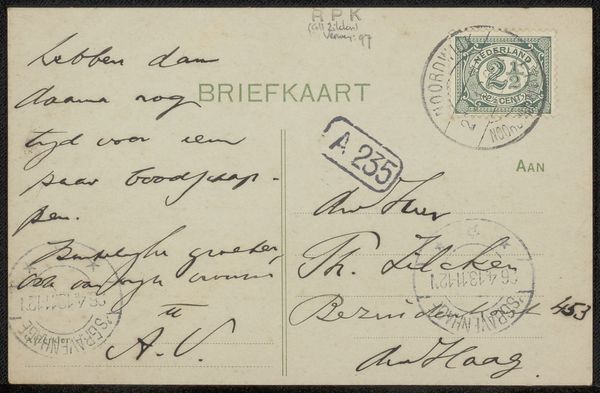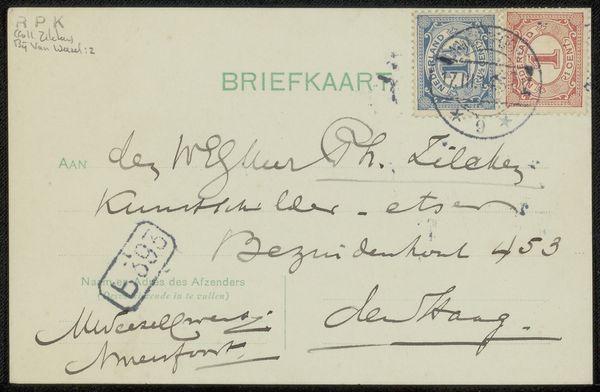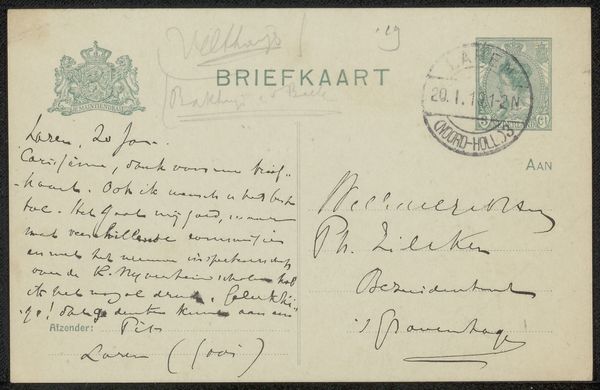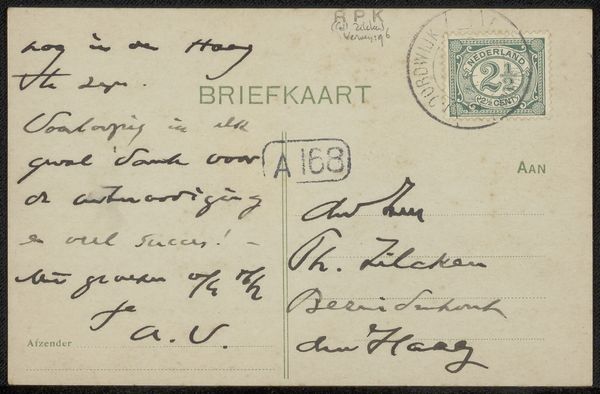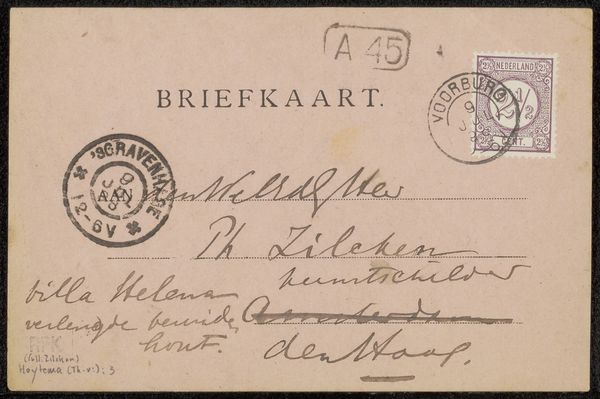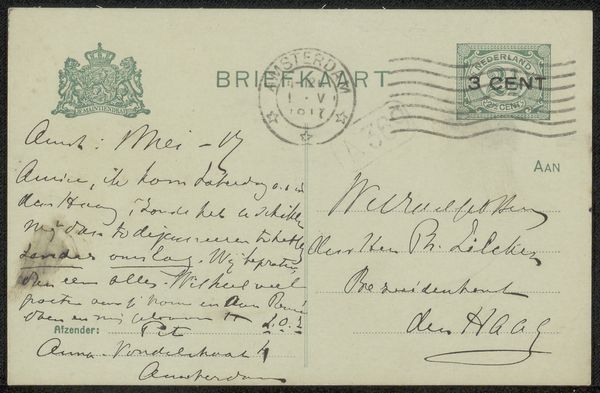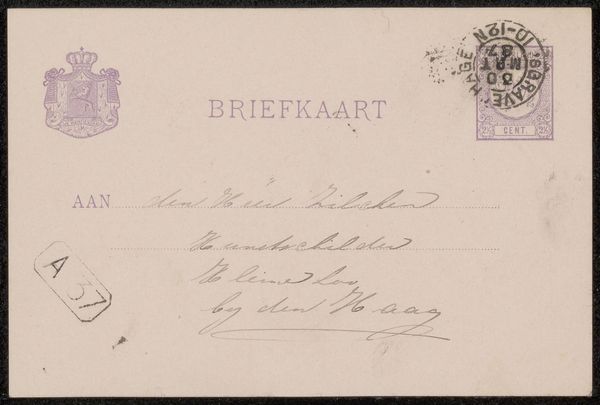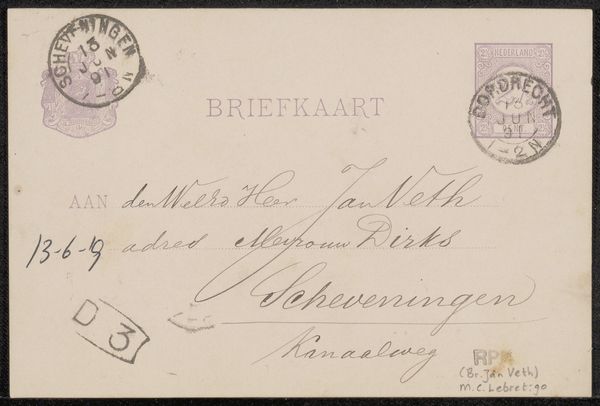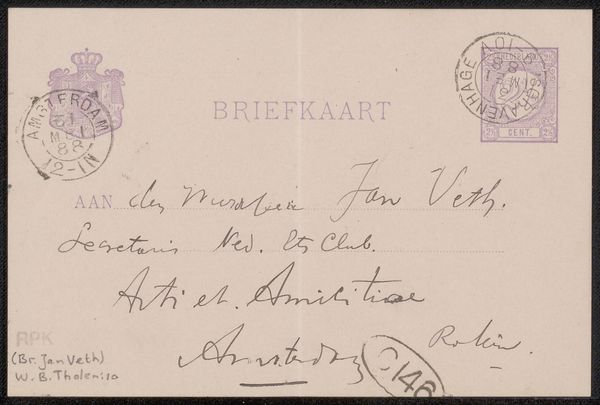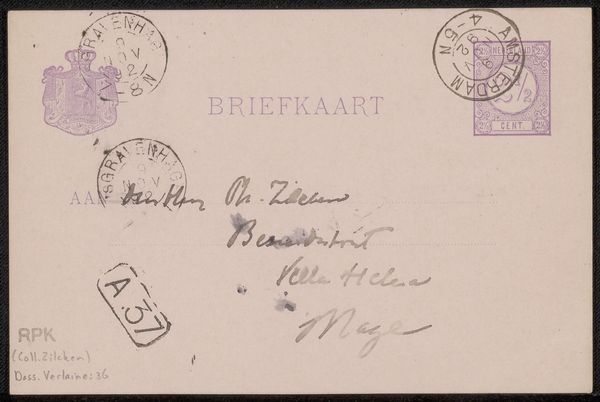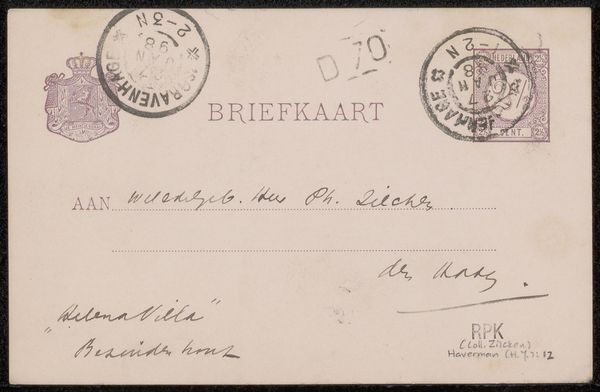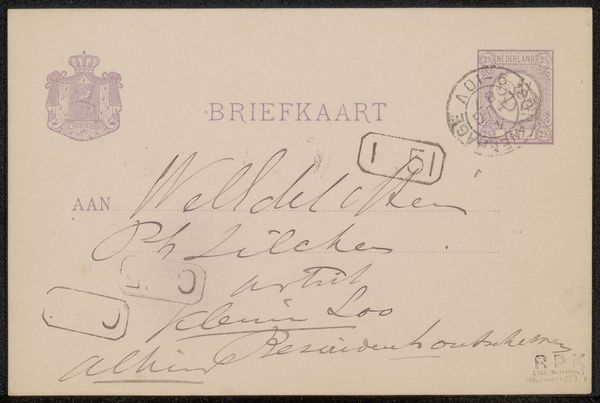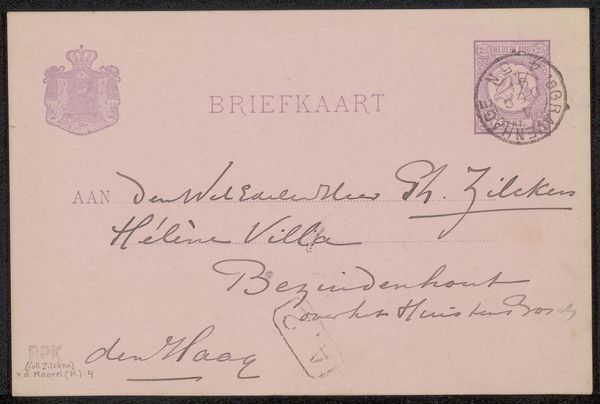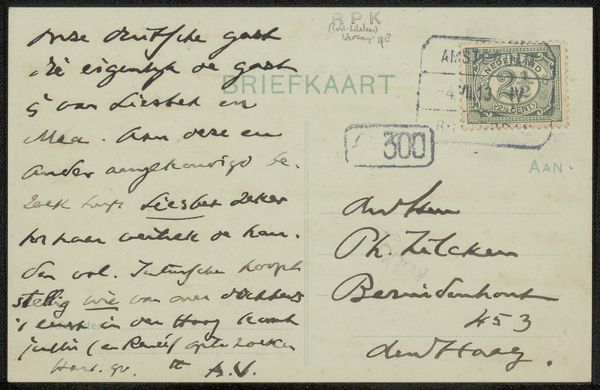
drawing, paper
#
drawing
#
hand written
#
script typography
#
hand-lettering
#
hand drawn type
#
hand lettering
#
paper
#
hand-written
#
hand-drawn typeface
#
fading type
#
thick font
#
handwritten font
#
calligraphy
Copyright: Rijks Museum: Open Domain
Curator: Here we have a glimpse into the past—a postcard, or "Briefkaart," created before 1913 by Albert Verwey addressed to Philip Zilcken. It is crafted with drawing on paper, its surface adorned with meticulously handwritten script. Editor: The faded ink gives the whole thing such a ghostly presence. It's intimate, like overhearing a conversation. You can feel the hand of the sender in every swirl of the letters. Curator: Exactly! And beyond that initial feeling, the visual choices embedded in Verwey's creation connect with deeper concerns. Consider how handwriting, particularly in correspondence, has been gendered and classed over time. What social circles allowed for such artistic license in communication? Editor: It also raises a more direct question, doesn't it, of the image itself. If the primary content of this object IS the lettering, does that imbue the letter itself with some extra level of symbolic value? We associate beautiful script with formality, historical significance. Curator: That tension between accessibility and elite practices shapes the card's meaning. I'd even argue that the act of creating a 'drawing' of the writing is loaded, as Verwey transforms what is typically seen as a message or data into high art, complicating simplistic dichotomies about skill and art status. Editor: Yes, seeing it through that lens, the careful looping of the letters almost resembles a cryptic cipher. It's both a practical form of communication, a handwritten letter—that particular and mundane technology—and something of great aesthetic intention. It evokes such a feeling of time, memory, and that human desire to connect. Curator: By analyzing pieces such as "Briefkaart aan Philip Zilcken," we illuminate overlooked yet critical perspectives on identity, communication and access, furthering contemporary conversations regarding privilege in relation to artifact. Editor: Seeing that stamp on a hand-written letter and knowing the places and lives involved - it is something quite amazing. This makes me really appreciate our exhibit and the work being done to make historical images such as these available to our visitors.
Comments
No comments
Be the first to comment and join the conversation on the ultimate creative platform.
